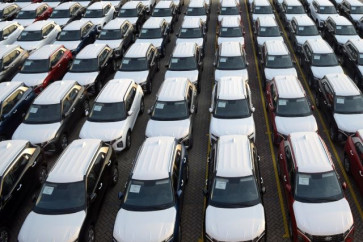Popular Reads
Top Results
Can't find what you're looking for?
View all search resultsPopular Reads
Top Results
Can't find what you're looking for?
View all search resultsWhy we should not antagonize imports
There is a prevailing perception among policymakers that imports are "bad" and exports are "good", but they are symbiotic elements of trade, and taking a strategic approach to imports can leverage international trade toward Indonesia’s integration into global value chains.
Change text size
Gift Premium Articles
to Anyone
D
uring the much-awaited vice presidential debate on Dec. 22, the topic of international trade took center stage. The three candidates, armed with export-driven visions, engaged in a strategic debate, deliberating on the most effective means to enhance Indonesia’s exports.
Absent from the discussion, however, was the exploration of a more delicate matter: the consideration of imports.
This comes as no surprise. Many politicians maintain the view that trade is all about exporting. Accordingly, numerous governments and policymakers prioritize key objectives such as bolstering export growth, diversifying exports and attaining a trade surplus.
Conversely, an unfavorable attitude persists toward imports, often portraying them as contributors to a trade deficit and impediments to a country’s economic growth.
Indonesia, for example, took pride in achieving a trade surplus for the 43rd consecutive month in November. The trade balance posted a $33.63 billion surplus from January to November this year, down 33.5 percent from the same period last year.
A trade deficit, where a country's imports surpass its exports, is also called a negative balance of trade and often viewed with concern for the economy. Challenging this perception, experts like Daniel Griswold, who specializes in trade and immigration policies, are debunking the myths associated with trade deficits.
Griswold argues against the common belief that trade deficits are directly linked to industrial decline or unemployment. On the contrary, he suggests that imports might signify positive indicators, reflecting global investor confidence and increased purchasing power among domestic consumers.



















